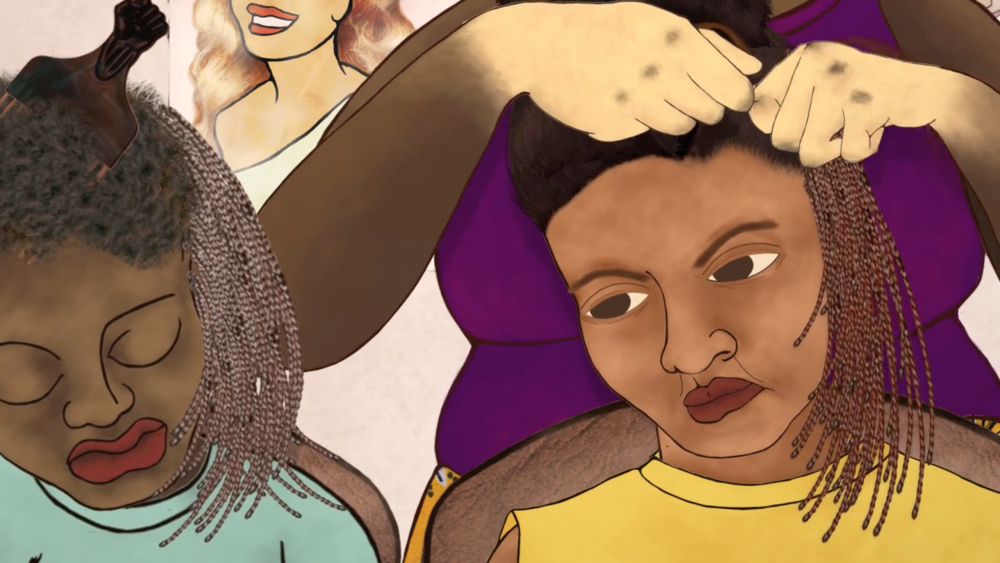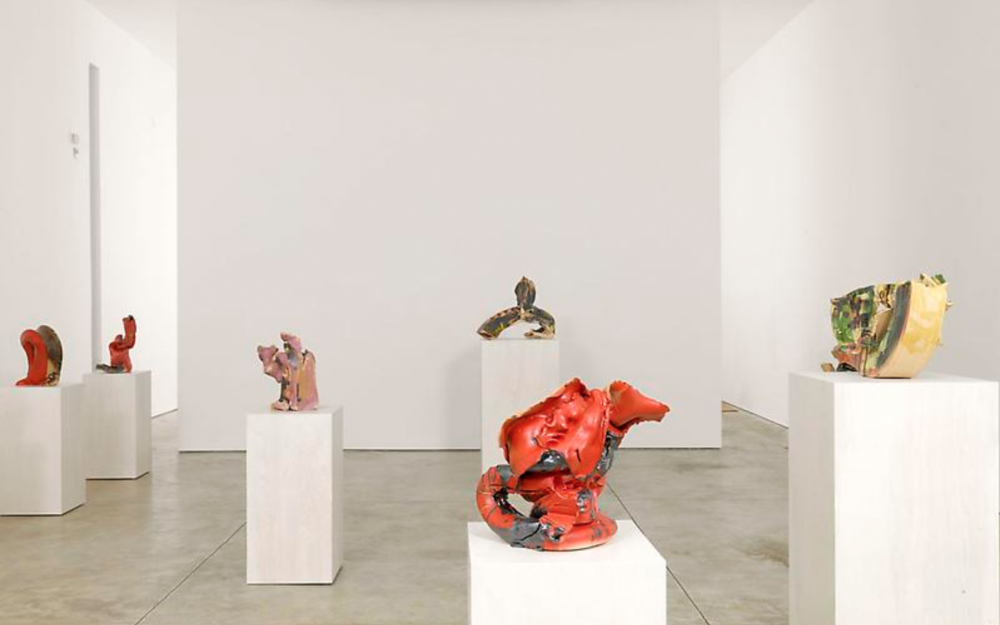Bottled and Tubed
Ng'endo Mukii contextualizes her award-winning short film with an essay penned exclusively for Pelican Bomb to wrap up "(De)Tangled."

In 1976, Fela Kuti released his song, “Yellow Fever,” a stinging critique of the skin-bleaching practices gaining popularity amongst his people. “Who say you fine?” he breathes down the microphone. “Your face go yellow, your yansh go black, your skin go scatter” because “you dey bleach.”
Four decades later and his words still cut sharply across society’s fabric. The skin bleaching and “brightening” industry, worth billions, snakes into our daily lives. Softening, smoothing, lightening, brightening, and bringing happiness are its promise. Nigeria, Kenya, Ghana, South Africa, Malaysia, India, Brazil, England, worldwide.
Last week, I stood in a Nakumatt supermarket, looking for a new face wash. I promised myself that I would not purchase any brand that also offered a bleaching or “brightening” product on our shelves in Nairobi—products that the same companies claiming healthy, natural beauty solutions would not offer on their London shelves, at least not at Waitrose or Sainsbury’s. (But there are, of course, walls of skin lightening products in most Asian-run African beauty shops there.)
Twenty minutes later, walking up and down the same aisle, hope dwindling, I settle on a Johnson & Johnson facial wash. Not because they do not offer a skin “brightening” product right beside the face wash I’m eyeing, but because I am more irritated by St. Ives and Simple for playing the game while harping on about their love of nature and their “not tested on animals” products.
Well, thank you for testing on us.
It’s great that your research discovered that there is a deep flaw in our society that venerates women of fairer complexions over women with deeper skin tones. Discovered that the words “fair and lovely” have been used to contort our aspirations of beauty and realign our loyalties to your brands. That through advertising, “brightening” is not linked to harmful chemicals poisoning our blood, but linked instead to attraction, employability, happiness, marriage, and fulfillment in life.
As I stand in line, the woman in front of me empties her basket onto the checkout counter. Her daughter rushes in at the last moment. She is wearing a blue sweater over a white shirt and a blue pleated skirt. Her black Mary Jane school shoes show scuff marks and red soil dots her folded white socks. I wonder if she plays hockey. She places a chocolate bar and a tube of bleaching cream on the counter belt. A series of beeps clear the checkout, and I step forward.
The woman and her daughter walk away, chatting as they share the chocolate. The beauty of it all is that they have generations of repeat customers: women and girls who will teach their daughters their warped understanding of beauty. Not intentionally or outwardly, not in words, but silently, when their yellow-bleached hands cradle their daughter’s little chocolate fingers. As they apply foundation, shades lighter than their natural skin tone, and smile back confidently at the world. These daughters will learn fast, as boys talk about the “brown” girls in their class and fight to sit next to them. They will learn when they turn on the TV, as actresses toss back Indian Human Hair weaves, their fair skin dazzling under studio lights. They will learn, when the dermatologist shows them a large box full of various bleaching products, never tested on anyone till their users bought them, and the doctor instructs them to throw their own unsafe creams in there for confiscation.
She will learn when her own daughter is born, soft, full, beautiful, and chocolate, and she cries, wishing it were not so.
Her yellow fingers, tarred with persistent mahogany knuckles, will wipe away tears salted with endless aisles of bleaching, “brightening,” “lightening,” “fading,” “éclaircissante” products, stretching across the world.
Editor's Note
Ng'endo Mukii is a Kenyan filmmaker based in Nairobi.



